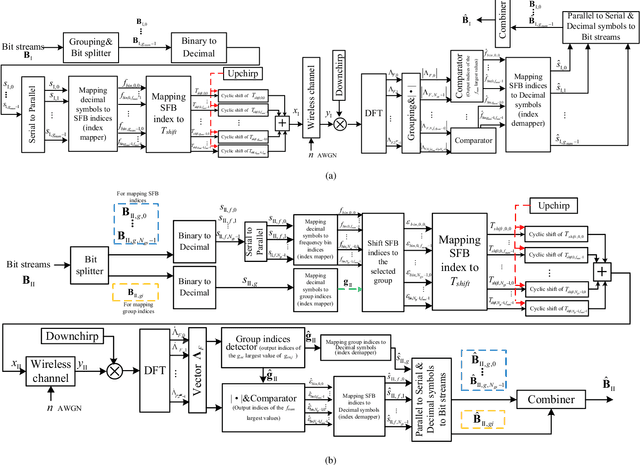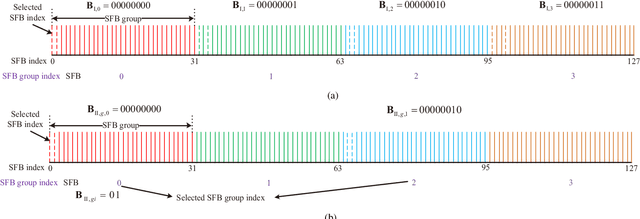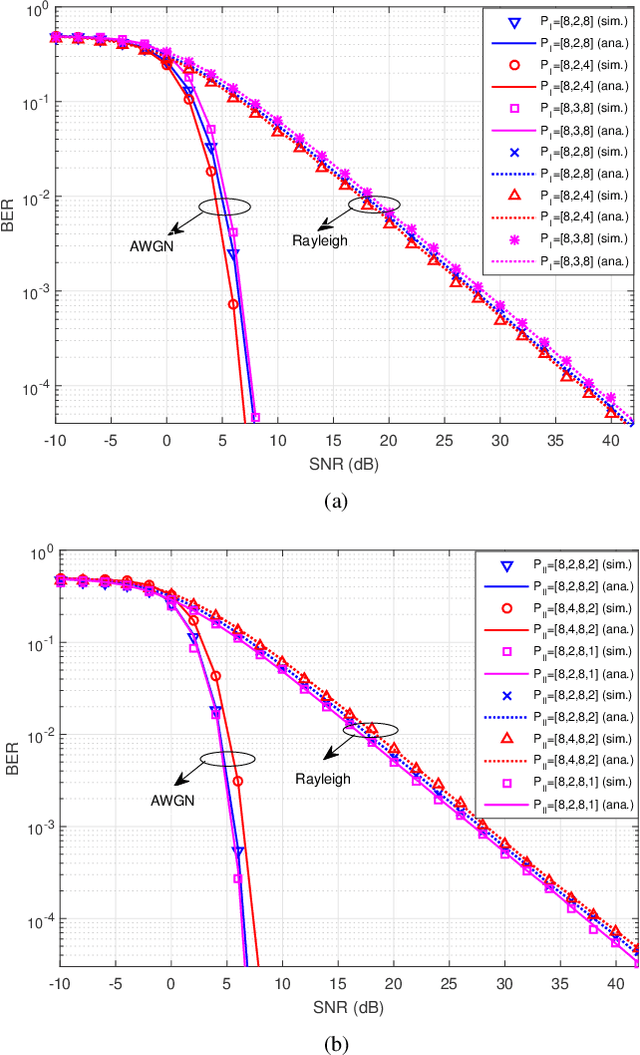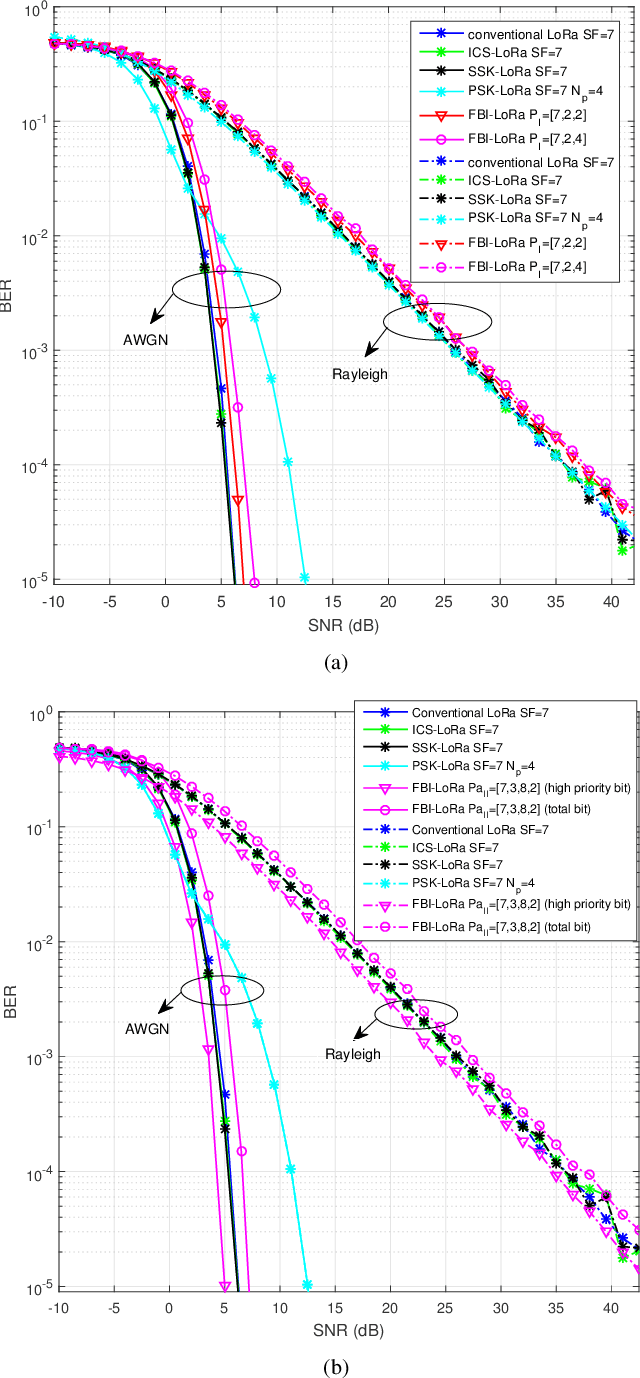A New Frequency-Bin-Index LoRa System for High-Data-Rate Transmission: Design and Performance Analysis
Paper and Code
Mar 29, 2021



As an attempt to tackle the low-data-rate issue of the conventional LoRa systems, we propose two novel frequency-bin-index (FBI) LoRa schemes. In scheme I, the indices of starting frequency bins (SFBs) are utilized to carry the information bits. To facilitate the actual implementation, the SFBs of each LoRa signal are divided into several groups prior to the modulation process in the proposed FBI-LoRa system. To further improve the system flexibility, we formulate a generalized modulation scheme and propose scheme II by treating the SFB groups as an additional type of transmission entity. In scheme II, the combination of SFB indices and that of SFB group indices are both exploited to carry the information bits. We derive the theoretical expressions for bit-error-rate (BER) and throughput of the proposed FBI-LoRa system with two modulation schemes over additive white Gaussian noise (AWGN) and Rayleigh fading channels. Theoretical and simulation results show that the proposed FBI-LoRa schemes can significantly increases the transmission throughput compared with the existing LoRa systems at the expense of a slight loss in BER performance. Thanks to the appealing superiorities, the proposed FBI-LoRa system is a promising alternative for high-data-rate Internet of Things (IoT) applications.
 Add to Chrome
Add to Chrome Add to Firefox
Add to Firefox Add to Edge
Add to Edge